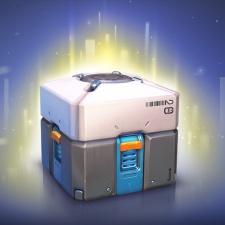France's online gambling authority ARJEL has said that loot boxes do not constitute gambling - but they do require some form of oversight.
That's according to a Government report - as spotted (and more importantly, translated) by Kitgaru - that says that loot boxes require closer examination.
Furthermore, the report says that the EU should come to some form of an agreement as to how to treat loot boxes in video games.
ARJEL says that loot boxes are not gambling as there is no real-world value to the items obtained. Interestingly, the regulator says that this is down to developers and publishers themselves not benefiting from trade of in-game items. This an interesting contrast to the decision taken by The Netherlands, which is due to third-party sites being present for many games and thus items being sellable.
Since the Star Wars Battlefront II debacle, a number of regulators around the world have been brought in to assess the impact and legality of loot boxes.
Belgium and The Netherlands have brought down the hammer the hardest. The former has straight-up declared them to be illegal, with some pretty substantial fines in place for developers and publishers who do not remove them from their games.
The Netherlands' Gaming Authority has declared loot boxes in four games gambling, with the body sending letters to developers and publishers to have them remove Item trading from their projects.
Last month, Valve pulled item trading from Counter-Strike: GO and Dota 2 to appease the gambling regulator and says that there are on-going conversations to find out what can be done moving forward.












